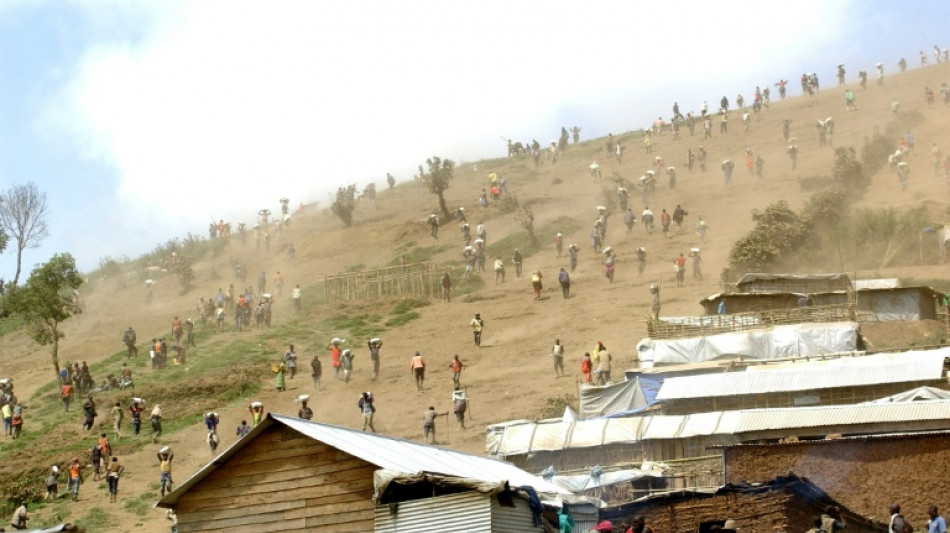
-
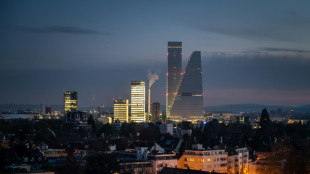 Roche says will invest $50 bn in US over next five years
Roche says will invest $50 bn in US over next five years
-
Fleeing Pakistan, Afghans rebuild from nothing
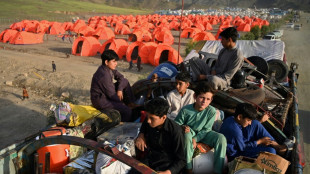
-
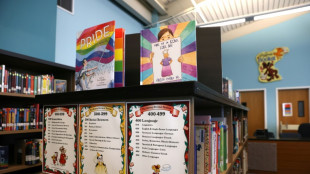 US Supreme Court to hear case against LGBTQ books in schools
US Supreme Court to hear case against LGBTQ books in schools
-
Pistons snap NBA playoff skid, vintage Leonard leads Clippers
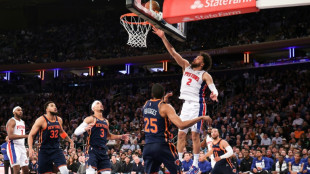
-
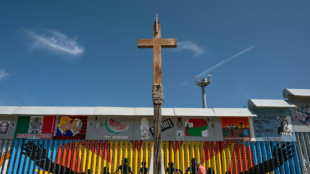 Migrants mourn pope who fought for their rights
Migrants mourn pope who fought for their rights
-
Duplantis kicks off Diamond League amid Johnson-led changing landscape

-
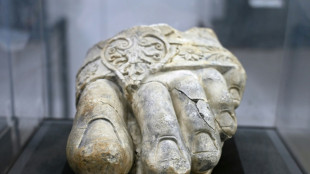 Taliban change tune towards Afghan heritage sites
Taliban change tune towards Afghan heritage sites
-
Kosovo's 'hidden Catholics' baptised as Pope Francis mourned
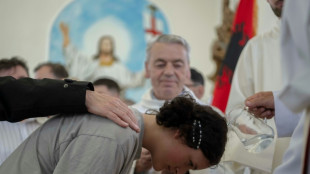
-
 Global warming is a security threat and armies must adapt: experts
Global warming is a security threat and armies must adapt: experts
-
Can Europe's richest family turn Paris into a city of football rivals?
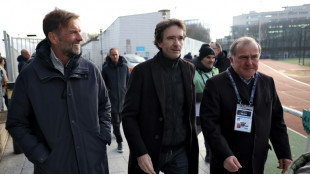
-
 Climate campaigners praise a cool pope
Climate campaigners praise a cool pope
-
As world mourns, cardinals prepare pope's funeral
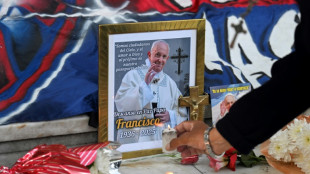
-
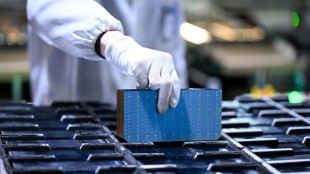 US to impose new duties on solar imports from Southeast Asia
US to impose new duties on solar imports from Southeast Asia
-
Draft NZ law seeks 'biological' definition of man, woman
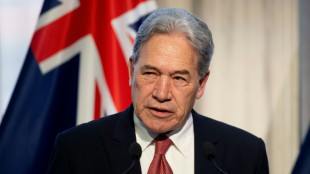
-
 Auto Shanghai to showcase electric competition at sector's new frontier
Auto Shanghai to showcase electric competition at sector's new frontier
-
Tentative tree planting 'decades overdue' in sweltering Athens

-
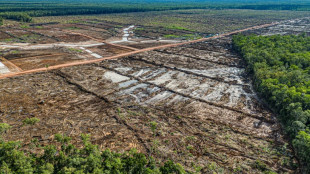 Indonesia food plan risks 'world's largest' deforestation
Indonesia food plan risks 'world's largest' deforestation
-
Gold hits record, stocks slip as Trump fuels Fed fears
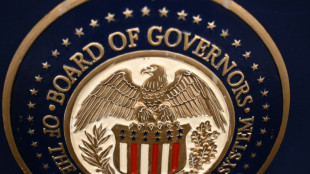
-
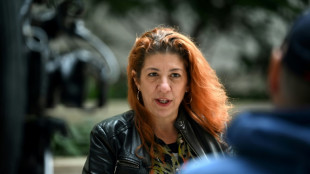 Trump helps enflame anti-LGBTQ feeling from Hungary to Romania
Trump helps enflame anti-LGBTQ feeling from Hungary to Romania
-
Woe is the pinata, a casualty of Trump trade war
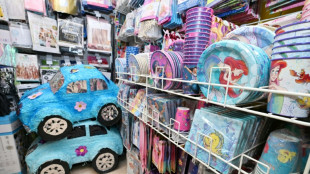
-
 'Like orphans': Argentina mourns loss of papal son
'Like orphans': Argentina mourns loss of papal son
-
Trump tariffs torch chances of meeting with China's Xi

-
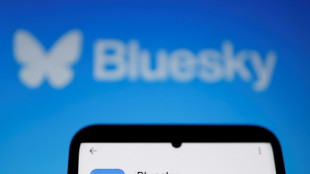 X rival Bluesky adds blue checks for trusted accounts
X rival Bluesky adds blue checks for trusted accounts
-
China to launch new crewed mission into space this week

-
 Morocco volunteers on Sahara clean-up mission
Morocco volunteers on Sahara clean-up mission
-
Latin America fondly farewells its first pontiff

-
 'I wanted it to work': Ukrainians disappointed by Easter truce
'I wanted it to work': Ukrainians disappointed by Easter truce
-
Harvard sues Trump over US federal funding cuts

-
 'One isn't born a saint': School nuns remember Pope Francis as a boy
'One isn't born a saint': School nuns remember Pope Francis as a boy
-
Battling Forest see off Spurs to boost Champions League hopes

-
 'I don't miss tennis' says Nadal
'I don't miss tennis' says Nadal
-
Biles 'not so sure' about competing at Los Angeles Olympics

-
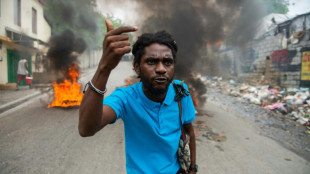 Gang-ravaged Haiti nearing 'point of no return', UN warns
Gang-ravaged Haiti nearing 'point of no return', UN warns
-
US assets slump again as Trump sharpens attack on Fed chief
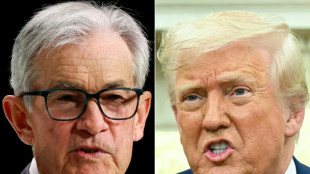
-
 Forest see off Spurs to boost Champions League hopes
Forest see off Spurs to boost Champions League hopes
-
Trump says Pope Francis 'loved the world,' will attend funeral
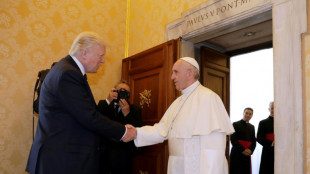
-
 Oscar voters required to view all films before casting ballots
Oscar voters required to view all films before casting ballots
-
Bucks' Lillard upgraded to 'questionable' for game 2 v Pacers

-
 Duplantis and Biles win Laureus World Sports Awards
Duplantis and Biles win Laureus World Sports Awards
-
US urges curb of Google's search dominance as AI looms
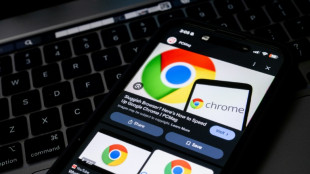
-
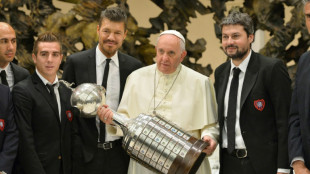 The Pope with 'two left feet' who loved the 'beautiful game'
The Pope with 'two left feet' who loved the 'beautiful game'
-
With Pope Francis death, Trump loses top moral critic
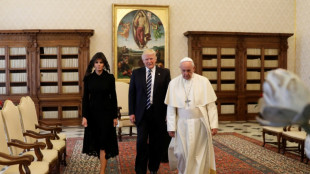
-
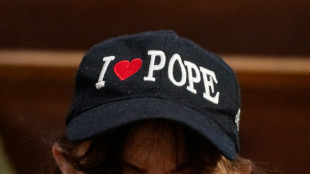 Mourning Americans contrast Trump approach to late Pope Francis
Mourning Americans contrast Trump approach to late Pope Francis
-
Leeds and Burnley promoted to Premier League

-
 Racist gunman jailed for life over US supermarket massacre
Racist gunman jailed for life over US supermarket massacre
-
Trump backs Pentagon chief despite new Signal chat scandal
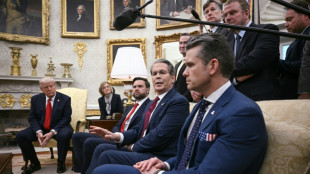
-
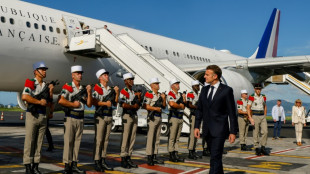 Macron vows to step up reconstruction in cyclone-hit Mayotte
Macron vows to step up reconstruction in cyclone-hit Mayotte
-
Gill, Sudharsan help toppers Gujarat boss Kolkata in IPL

-
 Messi, San Lorenzo bid farewell to football fan Pope Francis
Messi, San Lorenzo bid farewell to football fan Pope Francis
-
Leeds on brink of Premier League promotion after smashing Stoke


The role of minerals and tech firms in the DR Congo conflict
The conflict between Rwanda-backed forces and the DR Congo is often presented as a struggle to control the valuable minerals that power global electronics.
But the focus on "conflict minerals" may obscure other drivers of the violence in one of the world's most volatile regions.
DRC and Rwanda together supply around half the world's coltan, the metallic ore that is vital in making phones and laptops.
United Nations experts, rights groups and analysts say Rwanda smuggles vast amounts of coltan -- as well as gold and other metals -- out of eastern DRC and sells it as its own.
They accuse Rwanda of supporting an armed group, M23, that resurfaced in eastern DRC in 2021 and controls many of the region's mines.
Last April, they seized Rubaya, whose mines produce an estimated 15 percent of the world's coltan, according to the UN experts, who estimate the M23 earns some $800,000 per month from the trade.
The M23 last week seized the key transport hub of Goma on the Rwandan border, leaving hundreds dead, and is pushing south into the neighbouring South Kivu province.
Robert Amsterdam, a lawyer who filed a criminal case against Apple in December on behalf of the Congolese government, said Western governments and companies bear ultimate responsibility.
"The tech industry has funded Rwanda's war crimes," he told AFP.
Apple initially said there was "no reasonable basis for concluding" its products contain illegally exported minerals from conflict zones.
But after the criminal case was filed, Apple said it had ordered its suppliers to stop sourcing minerals from DRC and Rwanda.
Apple "has now admitted they can't distinguish the source of the minerals," said Amsterdam.
"It means all the supply chains of all the tech companies are all equally tainted."
Apple has "firmly contested" the allegations, saying it is "profoundly engaged" in responsible sourcing of minerals.
- 'Rwandans pay well' -
Rwanda denies illegally smuggling minerals out of eastern DRC, but analysts are unconvinced.
"Rwanda is always in the top 10 biggest exporters of coltan. Everyone knows this is impossible with the reserves they have. It's obvious this coltan comes from DRC," said Guillaume de Brier of the International Peace Information Service, which specialises in the region.
Nonetheless, he argued that minerals are not the main driver of the M23 conflict.
He pointed out that smuggling happens whether Rwanda is militarily active in eastern DRC or not.
Agence Ecofin, a data firm, said Rwanda's coltan exports surged in 2014-2018 when the M23 was dormant -- although there was an "unprecedented" boost in its exports in 2023, according to the UN.
Congolese miners don't need convincing to sell to Rwanda, since it saves them onerous paperwork and taxes.
"You're talking about people who won't eat if they don't make money on the day. They see it as much better to sell to Rwandans who pay well and in cash," De Brier said.
The current escalation in the conflict has other drivers, not least the personal animosity between Rwandan President Paul Kagame and DRC leader Felix Tshisekedi.
But local concerns are most important, said De Brier.
"For the media, it's less sexy than talking about conflict minerals," he said. "But these people are farmers -- the real issue is land ownership."
- 'Catastrophe brought by tech' -
The M23 originally emerged claiming to defend the long-marginalised Tutsi minority in Congo.
"They are trying to dismantle the traditional systems of land management controlled by local chieftains," said De Brier.
The International Peace Information Service, a think tank, argues that minerals are only one part of M23's funding, which also includes an estimated $69,500 per month in roadblock levies, as well as household taxes, forced agricultural labour, and timber and charcoal trafficking.
None of this should absolve the West for its part in fuelling the unrest, Amsterdam said.
"This has been a catastrophe brought to you by tech," he said.
He hopes Apple's decision to stop sourcing from there will trigger "a cascade of change in the entire tech industry".
B.Baumann--VB
